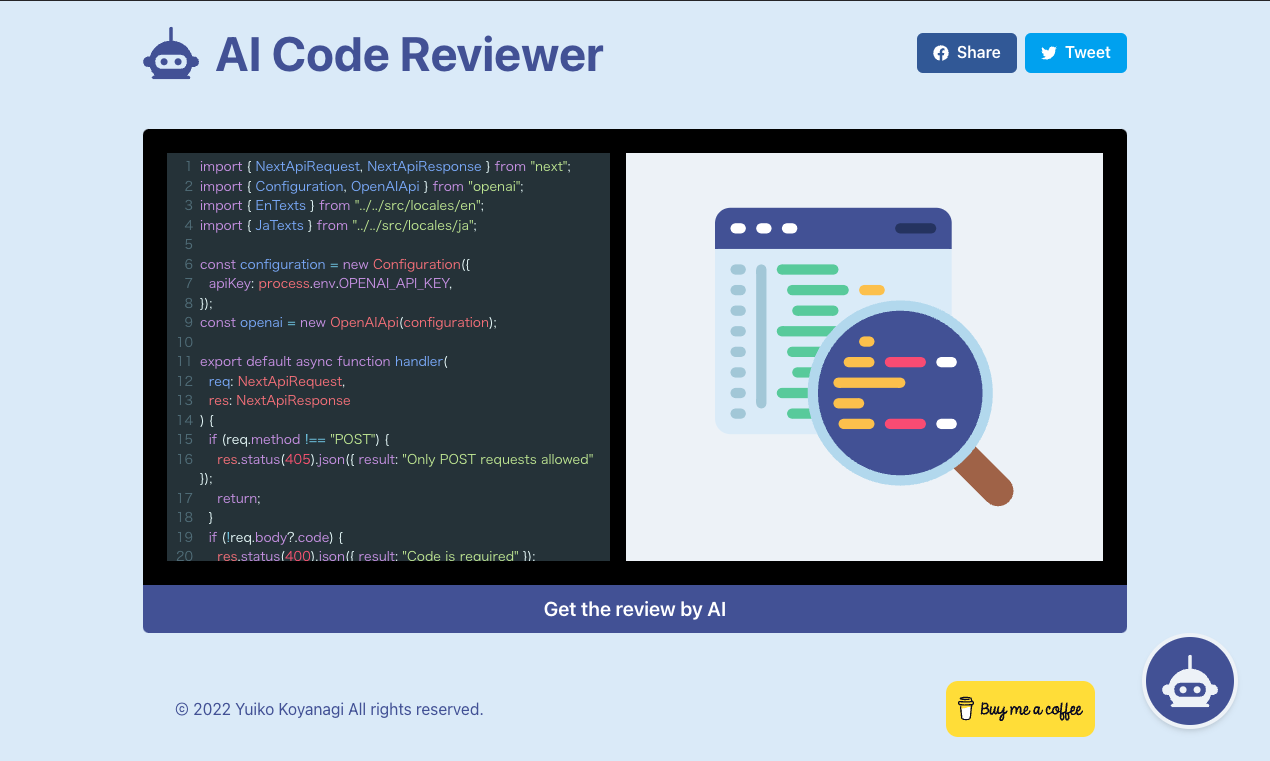In recent years, the rise associated with artificial intelligence (AI) has transformed several industries, and software program development is simply no exception. AI-powered code assistants like GitHub Copilot, OpenAI’s Codex, and Amazon’s CodeWhisperer have rapidly become valuable tools, creating code snippets, indicating fixes, and also helping developers compose entire functions. Along with such impressive capabilities, many imagine AI might 1 day fully replace human programmers. While AI provides undoubtedly enhanced the particular coding process, the question remains: can machines truly exchange developers? In this kind of article, we’ll explore the strengths and even limitations of AI coding assistants, evaluating them to the relevant skills, intuition, and creativeness that human creators bring to the particular table.
The Surge of AI Coding Assistants
AI coding assistants use machine learning models taught on massive datasets, which often include publicly available signal from open-source assignments. These models, which usually are frequently established on advanced nerve organs networks like OpenAI’s GPT, are capable of processing organic language inputs in addition to generating code throughout multiple programming different languages. Their functionalities contain autocompletion, syntax suggestions, bug detection, plus even code documents.
AI-powered coding resources have proven extremely beneficial, particularly within repetitive tasks, syntax corrections, and boilerplate code generation. Intended for developers working in complex applications, these assistants offer considerable less time, allowing them to focus upon high-level problem-solving quite than routine code-writing.
Advantages of AJAI Coding Assistants
AI coding assistants offer you several benefits, specially in terms regarding efficiency, productivity, and learning support.
Improved Efficiency: AI assistants can handle repeated coding tasks faster than a human being. By automating regular tasks like producing boilerplate code or formatting, developers may focus on more complicated problems, reducing total project time.
Error Reduction: Many AI tools offer format checking and problem prediction in timely. They alert designers to potential glitches or code vulnerabilities as they compose, potentially reducing the quantity of errors in the particular codebase and enhancing the quality of the last product.
Learning Help for Beginners: For anyone new to coding, AI coding assistants can act while real-time tutors. These people provide guidance upon syntax, suggest best practices, and gives illustrations that help starters learn through hands-on experience.
Enhanced Productivity: By providing autocomplete suggestions and techniques, AI coding co-workers allow developers to code more swiftly. These tools can usually complete whole lines or functions, which in turn can be a new major productivity raise, particularly in bigger codebases.
Cross-Language Assistance: AI models taught on multiple encoding languages may help designers switch between languages with more convenience, making it much easier to work in diverse projects and even reducing the understanding curve associated with new programming dialects.
Limitations of AI Coding Co-workers
Regardless of these benefits, AI coding assistants need notable limitations of which prevent them coming from fully replacing human being developers.
Not enough In-text Understanding: AI does not have a deep knowing of the project’s overall context and intent, which boundaries its ability to make judgment calls. Whilst it can compose syntactically correct computer code, it might struggle along with implementing nuanced requirements or understanding special business goals.
Limited Problem-Solving Skills: AI tools are really effective at pattern identification but lack legitimate problem-solving skills. Code often requires creative work and the potential to tenderize complicated problems—capabilities that AJAI, in its present state, cannot totally replicate.
Vulnerability to Bias and Error: Because AI code models are qualified on existing datasets, they can unintentionally perpetuate errors or security vulnerabilities identified in those datasets. This can lead to unreliable suggestions or even code that may contain hidden hazards.
Inability to Realize User Needs: Individual developers often have interaction directly with customers to understand their needs, adjusting code plus design accordingly. AJAI cannot yet understand nuanced requirements or ask clarifying concerns, which are generally necessary to produce user-centered software.
Moral and Legal Concerns: Since AI instruments are trained on the subject of publicly available computer code, questions have come to light about copyright intrusion and intellectual real estate. Developers and companies need to end up being cautious about relying solely on AI-generated code to steer clear of potential legal effects.
Key Differences In between AI and Human being Coders
AI coding assistants and human being developers each deliver unique strengths in order to the table, that differences highlight the reason why AI is not likely to replace individuals down the road.
Creativity and even Innovation: Coding is not just concerning following rules; it often requires creative solutions and innovative ways to solve new issues. Human developers deliver intuition and creativity to the coding process, particularly if encountering conditions that lack a straightforward remedy.
Collaborative Skills: Computer software development is usually a collaborative process involving teamwork, thinking, and feedback spiral. Human coders function together, adjusting plus refining ideas. AJE, however, cannot take part meaningfully in that method and lacks typically the collaborative abilities that will are crucial to be able to successful software jobs.
Adaptability: Developers frequently work with a variety of tasks, like system design, user experience, and performance optimization, which demand adaptability and a broad knowledge of each coding and non-coding aspects. AI equipment, on the various other hand, are directly focused on program code generation and be short of the flexibility to be able to adjust to transforming project requirements or perhaps technologies.
Code High quality and Optimization: Experienced human developers can write efficient, enhanced code tailored in order to specific hardware, work with cases, and overall performance requirements. AI-generated program code often lacks these refinements and will prospect to issues using efficiency or efficiency.
visit their website and User Empathy: Human developers can empathize with users and anticipate their wants, making user-friendly interfaces and experiences. This particular human touch is usually essential in constructing software that resonates with users and provides a positive encounter, something AI can not replicate.
Complementing, Not Exchanging
Rather as compared to fully replacing man developers, AI code assistants act as important complementary tools. Simply by handling repetitive or routine coding projects, AI enables designers to focus on higher-order thinking, creativeness, and innovation. Builders can delegate selected areas of their work to AI, nevertheless they remain in manage of the important decision-making and proper aspects of computer software development.
AI coding assistants, like GitHub Copilot, have proven that automation can reduce the time invested in mundane responsibilities. This productivity increase allows developers to be able to tackle larger, more complex projects and even deliver them even more quickly. With human oversight, AI-generated computer code can also get reviewed, optimized, in addition to aligned with task goals and honourable standards.
Future Potential customers: Augmentation over Substitute
The future regarding AI in code will more than likely focus upon augmenting human abilities rather than upgrading them. As AI continues to improve, coding assistants can evolve to manage more complex jobs, but they will still rely about human developers intended for direction, oversight, and even creativity.

Enhanced Effort Between AI in addition to Developers: AI may possibly evolve in to a collaborative partner which could read high-level requirements and work alongside programmers in real-time. This specific partnership could accelerate development cycles and improve code high quality without fully exchanging human input.
Ongoing Learning and Version: As AI types become more complicated, they may study to adapt their own code generation structured on feedback through developers, potentially generating more tailored and optimized solutions over time. However, human oversight will remain crucial to maintain top quality and ethical requirements.
Ethics and Liability: As AI takes on more obligations, ethical considerations will end up increasingly important. Individual developers will enjoy a crucial role in making certain AI-generated computer code adheres to honest guidelines, security requirements, and corporate compliance, specifically as software significantly impacts various aspects of daily existence.
Conclusion: A Synergy of Human and even Machine
While AJE coding assistants have got transformed the computer software development landscape by improving efficiency plus reducing repetitive tasks, they are not yet capable involving replacing human developers. Coding is surely an art as much as it is a science, demanding creativity, empathy, and adaptability—qualities that are unique to individual intelligence.
Rather than viewing AI as a substitute, it’s more accurate to determine it as the powerful tool that complements the talents regarding human developers. Together, AI and individual coders will produce application that is faster, more efficient, plus more innovative as compared to either could attain alone. As AJAI technology continues to develop, the synergy involving human developers plus AI assistants will become an understanding feature of typically the future of code, empowering developers in order to push the restrictions of what’s achievable in software architectural.

